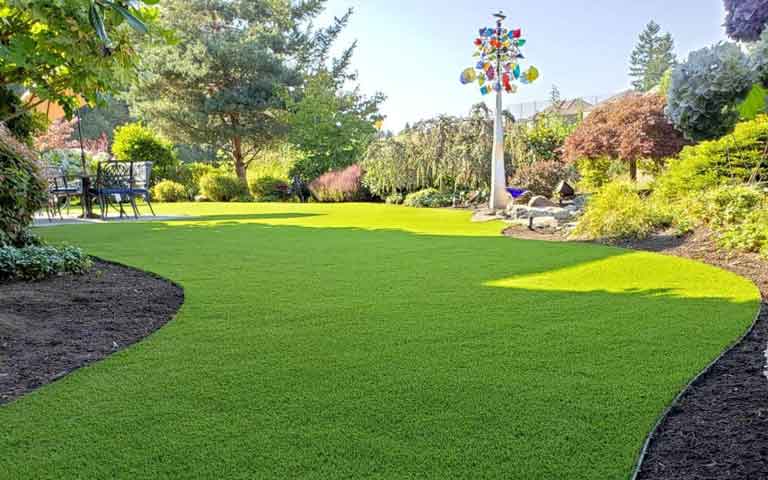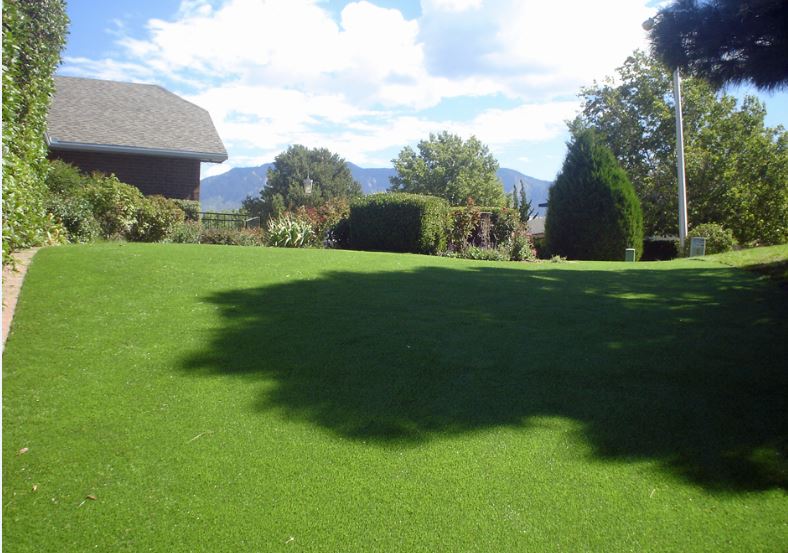Leading Reasons to Consider Artificial Lawn for a Low-Maintenance and lush Backyard
As home owners increasingly look for lasting remedies for outdoor areas, fabricated grass presents an enticing option to standard yards. The benefits extend beyond simple appearances and sustainability; checking out the multifaceted ramifications of artificial turf discloses a detailed method to yard administration that advantages much deeper consideration.
Year-Round Greenery
One of one of the most substantial benefits of man-made turf is its capacity to provide year-round plant, regardless of environment conditions. Property owners typically face difficulties in preserving a lively yard as a result of seasonal changes, dry spells, or hefty rainfall. Artificial turf gets rid of these worries, ensuring a constantly lush appearance throughout the year.
This artificial option is engineered to stand up to diverse climate situations, from burning summer warmth to freezing winter temperature levels. Unlike natural grass, which might brown or end up being uneven throughout extreme problems, synthetic grass maintains its vivid color and texture, improving the visual charm of any landscape.
In addition, synthetic grass is immune to bugs and diseases that commonly impact natural yards. This durability adds to its long-lasting beauty, as there is no requirement for chemical treatments or plant foods that can be dangerous to the environment. Moreover, property owners can appreciate the aesthetic benefits of a properly maintained yard without the intermittent challenges postured by natural yard care (backyard artificial grass).
Decreased Maintenance Initiatives
Fabricated grass dramatically minimizes upkeep initiatives, enabling house owners to enjoy a beautiful yard without the time-consuming jobs linked with natural lawn treatment. Among one of the most significant advantages of synthetic turf is the elimination of routine mowing. Without any demand for a lawnmower, property owners save both time and the expense of upkeep related to this tools.

Cleansing man-made grass is simple; a straightforward rinse with a hose pipe or the periodic cleaning to eliminate debris is normally enough - artificial grass canoga park. This convenience of treatment allows house owners to invest even more time appreciating their outside rooms as opposed to laboring over them. In recap, the reduced upkeep initiatives associated with man-made yard make it an appealing selection for those seeking an attractive, hassle-free yard
Water Conservation Perks
The considerable decrease in upkeep initiatives related to fabricated grass expands to water conservation, making it an eco-friendly option for property owners. Standard lawns require considerable amounts of water to remain vivid and lush, typically causing extreme water usage, especially in arid regions. In contrast, artificial yard removes the demand for regular watering, dramatically minimizing the general water usage in your yard.
By going with artificial grass, house owners can save thousands of gallons of water each year. This shift not only benefits specific families however also adds to wider environmental campaigns targeted at lowering water waste. In locations experiencing water shortage, the fostering of man-made turf can play a significant duty navigate here in mitigating the impacts of dry spell and ensuring that beneficial water sources are used extra effectively.
Additionally, the installment of synthetic turf can aid lower municipal water need, benefiting the neighborhood all at once. With growing recognition of environmental concerns, picking fabricated turf acts as a positive action towards lasting landscaping, aiding to protect all-natural water sources while preserving an aesthetically pleasing outdoor area (turf installation). In summary, fabricated turf offers a compelling remedy for water conservation, lining up ecological responsibility with contemporary landscaping requirements

Parasite and Allergic Reaction Reduction
A considerable advantage of installing artificial lawn is its capacity to lower parasites and irritants in outside spaces. Traditional grass yards usually function as breeding grounds for bugs such as insects, ticks, and ants, which can produce discomfort and health threats for animals and families. On the other hand, fabricated lawn eliminates the natural product that draws in these pests, thereby dramatically reducing their populations in your lawn.
Furthermore, all-natural grass can nurture mold, plant pollen, and other allergens, which can cause allergies and respiratory concerns for sensitive individuals. Artificial grass provides a cleaner setting, decreasing the possibility for allergenic reactions. Unlike natural yard, man-made turf does not create pollen, making it an exceptional option for allergic reaction patients looking for to enjoy their exterior spaces without the danger of flare-ups.
Furthermore, look what i found the lack of soil in fabricated lawn suggests there is much less dust and dust, further lessening airborne allergens. This low-maintenance choice not only improves the visual appeal of your lawn yet additionally promotes a much healthier exterior environment, enabling family members to enjoy their yards without the consistent worry of irritants and insects. Hence, artificial lawn is a strategic choice for those prioritizing convenience and health and wellness in their exterior living spaces.
Long-Term Expense Cost Savings
Spending in artificial turf can bring about substantial long-lasting expense financial savings for homeowners. While the initial investment may appear substantial, the economic advantages over time can be considerable. Artificial turf eliminates the need for regular lawn maintenance expenses, such as mowing, fertilizing, and watering. Standard yards usually call for significant sources to maintain a lush look, especially in areas prone to dry spell or extreme weather.
Furthermore, the longevity of artificial lawn additionally improves its cost-effectiveness. A lot of high-grade fabricated lawn products can last 15 to 25 years with minimal maintenance, minimizing the requirement for substitute or extensive repair work. On the other hand, all-natural turf may call for regular reseeding and regular treatment, which can rapidly build up in prices.
Utility savings are one more vital factor. Home owners can expect to see reduced water bills, as artificial turf does not call for irrigation. In addition, the reduction in lawn treatment services can liberate important additional hints time and sources, enabling homeowners to allot their spending plans elsewhere.
Verdict
In recap, artificial turf offers numerous advantages for home owners seeking a low-maintenance and lively landscape. Ultimately, the long-term price savings connected with fabricated lawn strengthen its status as a functional and lasting remedy for boosting exterior rooms.
Artificial yard considerably minimizes maintenance efforts, allowing property owners to appreciate a beautiful lawn without the lengthy jobs connected with natural yard treatment.The substantial decrease in upkeep efforts associated with artificial yard expands to water preservation, making it an eco friendly option for homeowners. In comparison, synthetic turf eliminates the demand for normal watering, substantially lowering the total water intake in your lawn.
In areas experiencing water scarcity, the fostering of synthetic grass can play a considerable function in mitigating the results of drought and guaranteeing that beneficial water sources are made use of a lot more effectively.
With expanding understanding of environmental concerns, choosing synthetic turf offers as a positive action towards lasting landscaping, aiding to maintain natural water sources while maintaining a cosmetically pleasing exterior area.